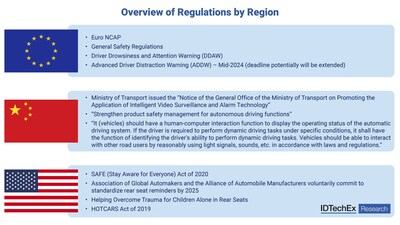The 2024 Summit of the Forum on China-Africa Cooperation (FOCAC) is being held in Beijing from September 4 to 6. It takes place at a critical juncture when the world is grappling with various regional and global crises and there is a pressing need for countries from the Global South to join hands. How will this year’s FOCAC elevate ties between China and Africa? Continue reading
Tag Archives: China
Coming Soon: Global Renewable Energy Summit 2024 Gathering of World Partners
Sungrow, a global leader in PV inverter and energy storage system provider, is excited to announce the Global Renewable Energy Summit 2024 (GRES), set to take place on June 11th in Hefei, China. This grand event will bring together industry experts, researchers, and partners from around the world to discuss the theme, “Exploring a Zero-Carbon Path with Sungrow,” emphasizing high-quality development in the global renewable energy industry. Read more
How is BRICS (Brazil, Russia,India,China,South Africa) bloc doing so far?
June 4, 2024 /Economy/ — The BRICS bloc has been in the news recently due to a significant development: it doubled its membership in January 2024. Argentina, Egypt, Ethiopia, Iran, Saudi Arabia, and the United Arab Emirates were all invited to join Atlantic Council. This expansion has the potential to reshape the bloc’s influence, but it also comes with challenges. Continue reading
History’s crisis detectives: how we’re using maths and data to reveal why societies collapse – and clues about the future
Daniel Hoyer, University of Toronto
American humorist and writer Mark Twain is believed to have once said, “History doesn’t repeat itself, but it often rhymes.”
I’ve been working as a historian and complexity scientist for the better part of a decade, and I often think about this phrase as I follow different strands of the historical record and notice the same patterns over and over.
Freedom of thought is being threatened by states, big tech and even ourselves. Here’s what we can do to protect it
Simon McCarthy-Jones, Trinity College Dublin
The idea of free speech sparked into life 2,500 years ago in Ancient Greece – in part because it served a politician’s interests. The ability to speak freely was seen as essential for the new Athenian democracy, which the politician Cleisthenes both introduced and benefited from.
Africa Cup of Nations showcases the continent’s finest footballers – and China’s economic clout
Simon Chadwick, SKEMA Business School and Chris Toronyi, Loughborough University
When the Africa Cup of Nations begins on January 13, the opening match between Guinea Bissau and the hosts, Ivory Coast, will be played at the Alassane Ouattara Stadium in Abidjan. The state-of-the-art venue is one of six stadiums being used during the football tournament.
IDTechEx Summarized Regional Regulations for Mandating Driver Monitoring Systems
Driver monitoring systems (DMS) have gained considerable momentum, driven by the escalating SAE autonomous driving levels and regulatory frameworks in key regions like the USA, Europe, China, Japan, and others. While DMS is not a novel concept, traditional DMS techniques typically rely on passive data sourced from advanced driver-assistance systems (ADAS), such as driving duration and lane-keeping. Although these conventional passive technologies offer simplicity and easy integration into vehicles, they are prone to generating false positives. Continue reading
The Zambian debt restructuring impasse has got the international community riled
Nov. 29, 2023 /IEconomy/ — Zambia is a country in southern Africa that has been struggling with a heavy debt burden for many years. In 2020, the country became the first African nation to default on its sovereign debt during the COVID-19 pandemic. In an effort to get its finances back on track, Zambia has been seeking to restructure its debt with its creditors. Continue reading
Zambia’s foreign debt tragedy – what needs to happen to resolve the crisis
Danny Bradlow, University of Pretoria
Three years after defaulting on its foreign debt, Zambia is still trying to reach agreement with all its creditors on how to manage this situation. This has left the southern African country in a state of development finance limbo. It is handicapped in raising the funds needed to generate jobs, build infrastructure, provide health, education and social services and deal with climate change. Its president, Hakainde Hichilema, has warned that the situation threatens to undermine its democracy.
Chinese automotive industry has overtaken to supercars
On the evening of October 9th, China’s first supercar production line was officially put into production at Hyper in Guangzhou, and AION launched China’s first electric luxury supercar, Hyper SSR with 1.9s 0-100km/h acceleration, which is the world’s first production electric supercar with the world’s fastest acceleration. Meanwhile, we are amazing to see that we can’t see any western parts, all of parts of Hyper SSR are independently developed and manufactured in China. Continue reading










